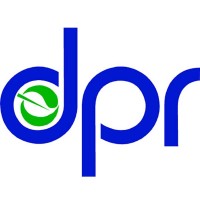

Interpreting the Definition of Regularly Handle, Title 3 California Code Regulation Section 6000
The medical supervision program was implemented to proactively evaluate an employee’s health and protect them before they are overexposed to toxic organophosphate (OP) and carbamate (Carb) pesticides. Title 3 California Code Regulation (3CCR) section 6728 requires each employer who has an employee who “regularly handles” OP or Carb pesticides with the signal words “Danger ” or “Warning” (Category I and II) to ensure the employee has baseline and follow-up cholinesterase tests as specified. In the late 1980’s some modifications were made to the medical supervision program. One of those changes affected the definition of regularly handle. Part of the definition of “regularly handle” now reads “…the employee is handling pesticides during any part of the day for more than six calendar days in any 30 consecutive day qualifying period beginning on the first day of handling.”
A recent fatal incident investigation brought forward the fact there are two interpretations of the definition of “regularly handle.” Both interpretations are apparently being used by enforcement personnel to determine a 30-day period.
In one interpretation – call it the fixed period interpretation – there are fixed 30-day periods starting the first day a handler works with an OP or Carb. In a worst-case scenario, using this interpretation, a handler could be exposed up to 11 days (10-consecutive days) in two consecutive 30-day periods without triggering medical supervision requirements. The “fixed period” interpretation circumvents the intent of medical supervision by allowing more than six days exposure without triggering medical supervision.
The second interpretation – sliding period – means the 30-day period changes every day. Thus the requirement for working seven days in a 30-day period must be reevaluated each day.
Because the “fixed period” interpretation does not meet the intent of the of the medical supervision program, Department of Pesticide Regulation has adopted the “sliding period” interpretation. Thus any time an employee handles category I or II OP or Carb pesticides for more than six days in any 30-day period (that is 30 consecutive days), that employee falls under the requirements of the medical supervision program.
If you have any questions about the application of this interpretation, please contact the Enforcement Branch Liaison assigned to your county.
Sincerely,
